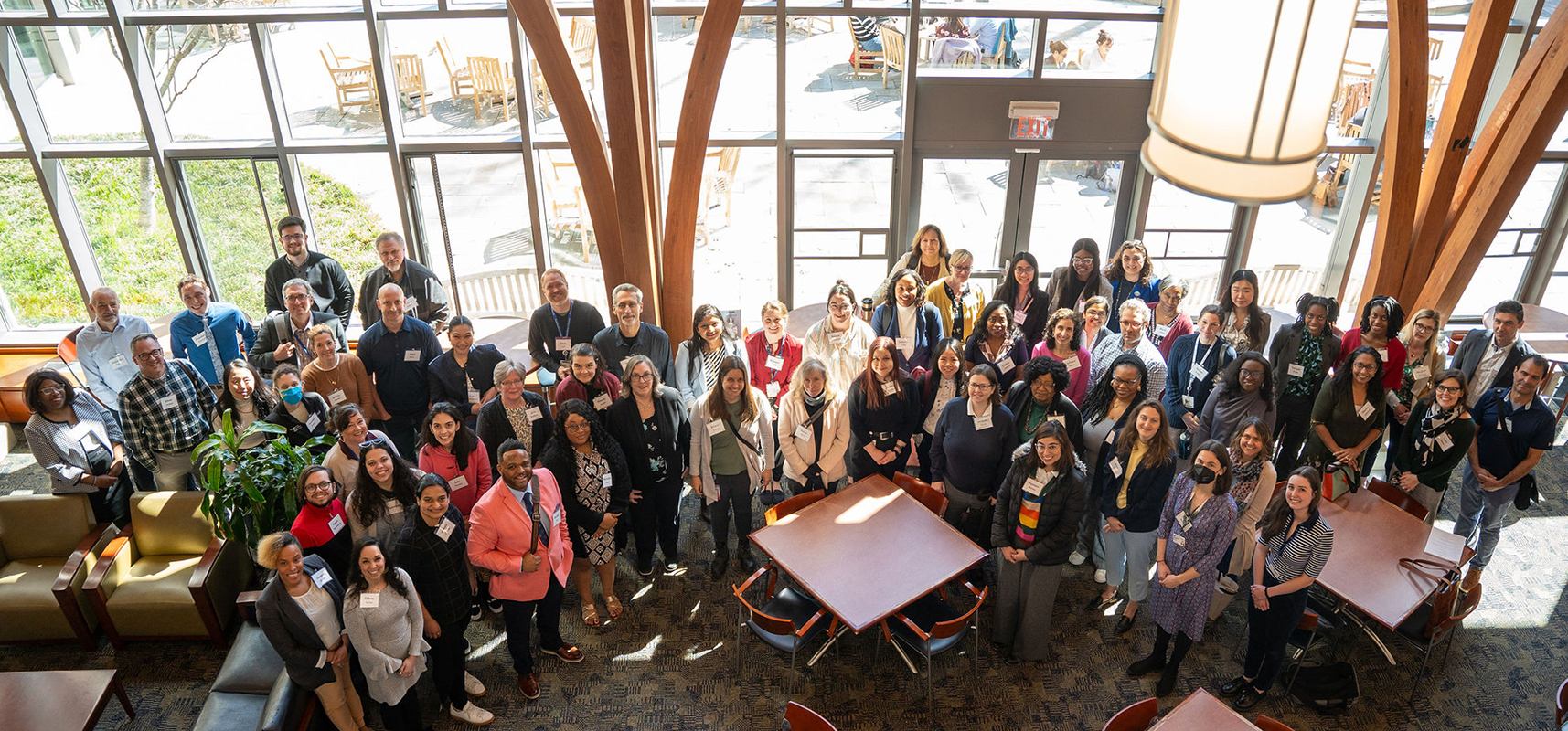Duke School of Nursing Leads the Charge in Advancing Health Equity through AI Via Newly Launched Initiative
Duke University School of Nursing has launched a new resource called Fostering AI Research for Health Equity And Learning Transformation Hub.

The School of Nursing's new Artificial Intelligence (AI) initiative has a dual mission focused on education and research, ultimately aimed at achieving health equity through advancements in AI education and research. This first of its kind initiative is led by Dr. Michael Cary, PhD, RN, Elizabeth C. Clipp Term Chair and Associate Professor and Glenn Setliff, Interim Vice Dean Information Technology & Facilities.
“The focus is on creating and applying AI systems in a manner that promotes fairness, reduces biases, and ensures that the benefits of AI are shared broadly across different populations,” said Dr. Cary. “This pioneering initiative is set to revolutionize how health professionals are educated and how healthcare research is conducted.”
“The goal is to provide the technology resources and practical training needed for Duke School of Nursing to become a leader in AI among our peer schools of nursing and within Duke University and Health System,” said Interim Vice Dean Setliff. “Understanding and providing access to these systems requires that we do the work of staying up-to-date on AI trends and the possibilities that they bring.”
AI plays a crucial role in healthcare for several key reasons:
- AI enables the tailoring of treatments to individual patients based on their unique health data and genetic makeup. This personalized approach can improve treatment outcomes and reduce the trial-and-error process in finding effective therapies.
- AI tools can predict disease outbreaks, how diseases will progress, and the likelihood of hospital (re)admissions. This predictive capability allows healthcare systems to prepare for future demands and allocate resources more effectively.
- AI can streamline hospital operations, from patient scheduling to the supply chain management. This efficiency can lead to better patient care, lower costs, and reduced workloads for healthcare professionals.
- Voice to text technology tools such as Nuance Dragon Ambient eXperience (DAX) enables clinicians to verbally dictate notes directly into electronic health records during patient visits. This capability significantly cuts down on the time traditionally spent on documentation, allowing healthcare providers to dedicate more time to patient care.
The School's AI intiative has hosted several events including a workshop on January 8, 2024 focused on the critical issue of algorithmic bias and clinical decision making. Developers, end-users, and students across Duke gained insights and practical strategies to identify, mitigate, and evaluate bias in clinical algorithms. The session also explored legal and ethical implications of algorithmic bias in healthcare, an aspect that is gaining increasing importance in today’s dynamic healthcare landscape.
In addition, Cary, Setliff, and the School held a research symposium on March 13-14, 2024. Over two days, experts across Duke and from around the country converged to explore AI's pivotal role in addressing healthcare disparities and our responsibility for advancing health equity and promoting responsible AI. In addition to keynote presentations and panel discussions, attendees engaged in thought-provoking conversations during a series of breakout sessions.
“By engaging in this symposium, and learning from each other, we have collaboratively established research setting agenda focused on developing healthcare algorithms that prioritize equity, minimize bias, and improve patient care,” said Dr. Cary.
“The work of DUSON's AI initiative is inspired by and aligns seamlessly with Duke School of Nursing’s commitment to transformative excellence in nursing education, practice, and science that promotes equitable health outcomes for all” said Dr. Cary.“ The initiative's focus on education and empowerment of healthcare professionals with AI skills dedicated to advancing health equity reinforces DUSON's goal of preparing leaders who are not only clinically proficient but also adept at using technology to address the complex challenges of health disparities.”
“Our hope is that a Duke School of Nursing education will give our students the head start they need to bring responsible and practical AI into their future clinical work, education, hospital leadership and research,” concluded Interim Vice Dean Setliff.
Future Events: Mark Your Calendars!
Summer Institute – August 2024: Join Dr. Cary and a team of distinguished academic leaders for two-day exploration into AI’s impact on healthcare, specifically through the lens of interprofessional education. This summer institute aims to empower health professions educators with the insights and capabilities necessary to leverage AI for transformative change in healthcare practices and outcomes.
Fall Institute – October 2024: This two-day event in autumn is led by Dr. Cary and distinguished nursing faculty members, is specifically designed for the nursing community. It will emphasize the application of AI in a wide range of nursing areas, including education and clinical research. The fall institute is designed to provide nurses with a comprehensive understanding and the practical skills necessary for implementing AI technologies in their diverse work settings.
Learn more about the School of Nursing's AI initiative here.
